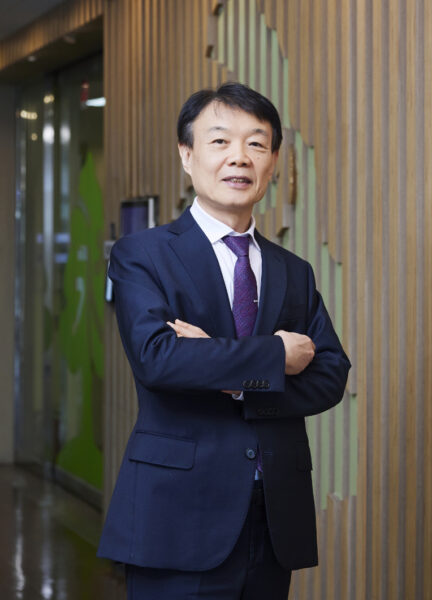In Honor of Eiichi Shibusawa…

Young Bum Kwon, CEO & Founder of YoungLimWon Soft-Lab
<永-Way : CEO’s 58th Remarks at YoungLimWon Soft-Lab>
“In Honor of Eiichi Shibusawa…”
December 2. 2024
In Peter Drucker’s renowned book Management, he writes: “The reason Japan holds a leading position in the global economy today (in the 1970s) is that the philosophy and actions of Eiichi Shibusawa in the early 20th century took root. The essence of a manager is not ‘wealth’ or ‘status,’ but the realization of a fundamental insight: ‘responsibility’.
I was intrigued by the fact that a global management scholar praised someone from over a century ago, 60 years later, and decided to read related books. As expected, Shibusawa was a remarkable figure who spent his entire life tirelessly challenging himself and seeking what was right, working diligently until his death at the age of 91.
At the age of 23, Shibusawa and three cousins planned to overthrow the outdated Tokugawa shogunate, gathering military funds and purchasing weapons, eventually rallying over 70 followers. However, their correspondence mentioning the overthrow of the shogunate was discovered, putting him in a dire situation.
With the help of a benefactor, Shibusawa avoided imprisonment and became a retainer of Tokugawa Yoshinobu, the last shogun. During this time, he had the opportunity to study in Paris while accompanying Yoshinobu’s younger brother, Akitake. Though his studies lasted less than two years, he was able to witness the advancements of various European nations while attending the Paris Exposition Universelle.
Fueled by a desire to develop Japan to the level of Europe, he cut off his topknot, adopted Western attire, and began his transformation. Driven by the question, “What is the root of Europe’s enlightened civilization?” he broadened his perspective through constant exploration, ultimately identifying joint-stock companies, banking systems, industrial infrastructure, and capitalist systems as the answer.
After returning to Japan, Shibusawa devoted himself to establishing banks, building railways, and founding companies. He played a central role in Japan’s industrial modernization, establishing over 500 companies, including Japan’s first National Bank (1872), Oji Paper (1873), Tokyo Marine Insurance (1879), Tokyo Gas (1885), Tokyu Corporation, Chichibu Cement, Kirin Brewery, Toyobo, and Cheil Jedang.
Shibusawa also had a connection to Korea. Before the Japan-Korea Protectorate Treaty was signed, he founded the Gyeongin Railway Partnership in the Korean Empire, completing the Gyeongin Line in 1900, and established the Gyeongbu Railway Company, completing the Gyeongbu Line in 1904. As president of the company, he made the crucial decision to use standard gauge tracks, disregarding opposition from the Japanese military and government. This enabled direct railway connections from Busan to Europe, despite extended construction time and budget overruns.
Beyond his role as an entrepreneur, Shibusawa contributed to society by founding educational institutions such as Hitotsubashi University, Waseda University, Tokyo University of Economics, and Doshisha University, as well as social welfare organizations like the Japanese Red Cross Society, Leprosy Prevention Society, and St. Luke’s International Hospital. He was involved in the establishment of over 600 social contribution institutions and even worked as the head of an orphanage, demonstrating practical leadership that transformed Japanese society.
At the age of 76, Shibusawa published his book The Analects and the Abacus, which argued that “the pursuit of profit in economic activities and the ethical teachings of the Analects of Confucius are not in conflict. By valuing righteous commerce, we can create a path that enriches our lives.”
One passage from his book resonates deeply:
“I have lived my life with an attitude of constant effort and have never neglected my duties for a single day. … If someone like me, an old man over seventy, can devote every moment to diligent work, then young people should study and work even harder. Good results never come from laziness. A nation’s strength grows in proportion to its passionate drive for effort.”
Indeed, companies with a strong passion for effort are the ones capable of achieving sustainable growth.
YB




